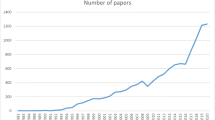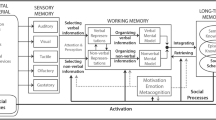Abstract
There is a continuing perception that current educational arrangements for technology education in modern liberal democracies are at odds with its actual delivery in the classroom (Dakers & Doherty 2003). The ‘technè versus poiesis’ tension (explained later) is one major contributor to this perception. Equally, the practice of ‘transmission versus constructivist’ pedagogies contributes to the mismatch between policy and practice.
This paper will investigate how factors relating to these two contributions affect the delivery of technological education. It will begin by discussing the derivation of the word ‘technology’ and how its modern incarnation has become not only amorphous, but confusing for technology education, in that the term can be taken to mean production on the one hand or process on the other. It will then explore technology teachers’ perceptions (and misperceptions) of what constitutes technology education, and discuss why this can lead to confusion. It will further consider how this can affect the pedagogy adopted. It will then examine two pedagogical frameworks which result from teachers’ perceptions of technology education as either; a process of internalisation of technological skills and functions as representations exclusively within the mind and unique to the individual, thus solo, or; a process of technological skills and functions embedded in sociocultural activity in which cognition is distributed across the internal mind and the external environment. Finally, the paper will offer a framework for the delivery of technology education set within a ‘community of learners’ paradigm.
Similar content being viewed by others
References
C. Ames (1992) ArticleTitle‘Classrooms: Goals, Structures, and Student Motivation’ Journal of Educational Psychology 84 IssueID3 261–271
M. W. Apple J. A. Bean (1999) Democratic Schools: Lessons from the chalk face Open University Press Buckingham
S. A. Barab T. M. Duffy (2000) ‘From Practice Fields to Communities of Practice’ D. H. Jonassen S. M. Land (Eds) Theoretical Foundations of Learning Environments Lawrence Erlbaum Associates New Jersey
D. Barlex (2003) Creativity in Crisis. Design and Technology at KS3 and KS4 Design and Technology Association Warwickshire
Z. Bauman (2003) The individualised society Polity, Blackwell publishing Malden
Benne, K. & Birbaum, M.: 1978, Teaching and Learning about Science and Social Policy . Boulder CO, USA: ERIC Clearinghouse for Social Studies/Social Science Education/Social Science Education Consortium.
J. S. Brown A. Collins P. Duguid (1989) ArticleTitle‘Situated Cognition and the Culture of Learning Educational Researcher 18 IssueID1 32–41
J. Bruner (1996) The Culture of Education Harvard University Press Massachusetts
M. Cole (1996) Cultural Psychology: A Once and Future Discipline The Bellknap Press of Harvard University Press Cambridge, MA
Cole, M., Wertsch, J. V. (no date). Beyond the Individual-Social Antimony in Discussions of Piaget and Vygotsky. www.prometheus.org.uk/Files/ColeAndWertschOnPiagetAndVygotsky. pdf, Accessed 22 September 2004.
Conference: 1868, Conference on Technical Education Held at Edinburgh, Friday 20th March 1868. Neiland Company, Edinburgh. (Publication held in University of Glasgow Special Collection, BG 57c. 17).
J. Dakers (2004a) ArticleTitleA Comparison Between Current Initiatives to Promote Science and Technology Education in Sweden and the Aspirations for Scotland The Scottish Educational Review, Dundee 36 IssueID2 206–218
Dakers, J.: 2004b, The introduction of Practical Craft Skills into the Scottish Technology Curriculum: A new beginning or the beginning of the end?A reply to my critics.In E. W. L. Norman, David Spendlove, Peter Grover, Andy Mitchell (eds.), Creativity and Innovation: Conference book. DATA International Research and UK Education Conference Book, pp. 35–40.
J. Dakers R. Doherty (2003) Technology Education T. Bryce W. Humes (Eds) Scottish Education Edinburgh University Press Edinburgh 611–616
J. Dakers W. Dow (2004) ArticleTitle‘The Problem with Transition in Technology Education: A Scottish perspective’ The Journal of Design and Technology Education, 9 IssueID2 116–124
DfEE.: 2004, The National Curriculum Online: Design and Technology. http://www.nc.uk.net/index.html (Accessed 04 March 2004).
Dow, W.: 2004, ‘The Role of Implicit Theories in the Development of Creative Classrooms’, in E. W. L. Norman, D. Spendlove, P. Grover & A. Mitchell (eds.), Creativity and Innovation: Conference book. DATA International Research and UK Education Conference Book. pp. 61–66.
C. S. Dweck (1999) Self Theories: Their Role in Motivation, Personality and Development Psychology Press Philadelphia
Ellul, J.: 1964, The Technological Society Vintage books, New York.
Y. Engeström R. Miettinen R. Punamäki (1999) Perspectives on Activity Theory Cambridge University Press New York/Cambridge
A. Feenberg (2002) Transforming Technology Oxford University Press Oxford
Fouet, J-M. & Nouira, R.: 1995, Acquisition and Structuration of Knowledge Using Metaknowledge, IJCAI’95 ( International Joint Conferences on Artificial Intelligences).Workshop on Machine Learning, Montreal, Canada, August. http://bat710.univ-lyon1.fr/∼fouet/Wbienvenue.html (accessed 17 September 2004)
Hansen, J. W. & Lovedahl, G. G.: 2004, ‘Developing Technology Teachers: Questioning the Industrial Tool Use Model’, Journal of Technology Education 15:2. http://scholar.lib.vt.edu/ejournals/JTE/v15n2/hansen.html (accessed 16 October 2004).
Harlen, W. & Holroyd, C.: 1996, ‘Primary Teachers’ Understanding of Concepts in Science and Technology. Interchange No. 34. Research and Intelligence Unit.
Heidegger, M.: 1962, Being and Time. Translated by John Macquarrie and Edward Robinson, San Fransisco. Harper and Row.
ITEA.: 2000, Standards for Technological Literacy. Content for the Study of Technology. International Technology Education Association, Virginia.
R. Kimbell (1997) Assessing Technology: International Trends in Curriculum and Assessment OU press Buckingham
R. Kimbell D. Perry (2001) Design and Technology in a Knowledge Economy Engineering Council London
A. Kroker (2004) The Will of Technology & the Culture of Nihilism University of Toronto Press Toronto
D. Kuhn (1991) The Skills of Argument Cambridge University Press New York
J. Lave (1988) Cognition in Practice: Mind, Mathematics and Culture in Everyday life Cambridge University Press Cambridge, UK
J. Lave (1993) ‘Situated Learning in Communities of Practice’ L. B. Resnick J. M. Levine S. D. Teasley (Eds) Perspectives on Socially Shared Cognition American Psychological Association Washington 17–36
J. Lemke (1997) ‘Cognition, Context and Learning. A social semiotic perspective’ D. Krishner J. A. Whitson (Eds) Situated Cognition, Social, Semiotic, and Psychological Perspectives Lawrence Erlbaum Associates New Jersey 37–56
E. Matusov (1998) ArticleTitle‘When Solo Activity is not Privileged: Participation and Internalisation Models of Development Human Development. Karger 41 326–349
R. E. Mayor (1992) Cognition and Instruction: their historic meaning within educational psychology. Jounal of Educational psychology A.F. Ashman R.N.F. Conway (Eds) An Introduction to Cognitive Education Routledge New York 405–412
M. Mead (1964) Continuities in Cultural Evolution Yale University Press New Haven
L. Mumford (1934) Technics and Civilization Harcourt Brace & Company San Deigo
A. Murphy J. Potts (2003) Culture and Technology PalgraveMacMillan New York
NZCF: 2004, Technology in the New Zealand Curriculum. http://www.minedu.govt.nz/web/downloadable/dl3614_v1/tech-nzc.pdf (Accessed 04 March 2004).
Peters, M. A. 2002, National Education Policy Constructions of the ‘Knowledge Economy: Towards a Critique, Journal of Educational Enquiry, 2(1), 2001.
L. B. Resnick (1987) ArticleTitle‘Learning in school and out’ Education Researcher, 16 12–20
Sobek, II, D. K.: 2001, Proceedings of the 2001 American Society of Engineering Education Conference. Available at www.coe.montana.edu/IE/faculty/sobek/ASEE01ERM.doc (Accessed 17 September 2004).
SCCC: 1996, Technology Education in Scottish Schools. A Statement of Position from Scottish CCC. Scotish Consultative Council on the Curriculum. Dundee.
P. Senge (1994) The Fifth Discipline Fieldbook. Stratagies and tools for building a learning organisation Doubleday New York
J. Staudenmaier (1985) Technology’s Storytellers: Reweaving the Human Fabric Society for the History of Technology and the M.I.T. Press Cambridge, MA, USA and London, UK
R. J. Sternberg W.M. Williams (2002) Educational Psychology Allyn & Bacon Boston, MA
R. Volti (2001) Society and Technological Change EditionNumber4 Worth Publishers New York
L. S. Vygotsky (1978) Mind in Society. The Development of Higher Psychological Processes Harvard University Press Massachusetts
V. Walkerdine (1997) ‘Redefining the subject in situated cognition theory’ D. Krishner J. A. Whitson (Eds) Situated Cognition, Social, Semiotic, and Psychological perspectives Lawrence Erlbaum Associates New Jersey 57–70
E. Wenger (1998) Communities of Practice: Learning Meaning and Identity Cabridge University Press Cambridge
J. Williams (1996) ‘Philosophy of Technology Education’ J. Williams A. Williams (Eds) Technology Education for Teachers MacMillan Education Australia Melbourne
L. Winner (1977) Autonomous technology: Technics-Out-of-Control as a theme in political thought MIT Press Cambridge
Author information
Authors and Affiliations
Corresponding author
Rights and permissions
About this article
Cite this article
Dakers, J. Technology Education as Solo Activity or Socially Constructed Learning. Int J Technol Des Educ 15, 73–89 (2005). https://doi.org/10.1007/s10798-004-6196-1
Issue Date:
DOI: https://doi.org/10.1007/s10798-004-6196-1




